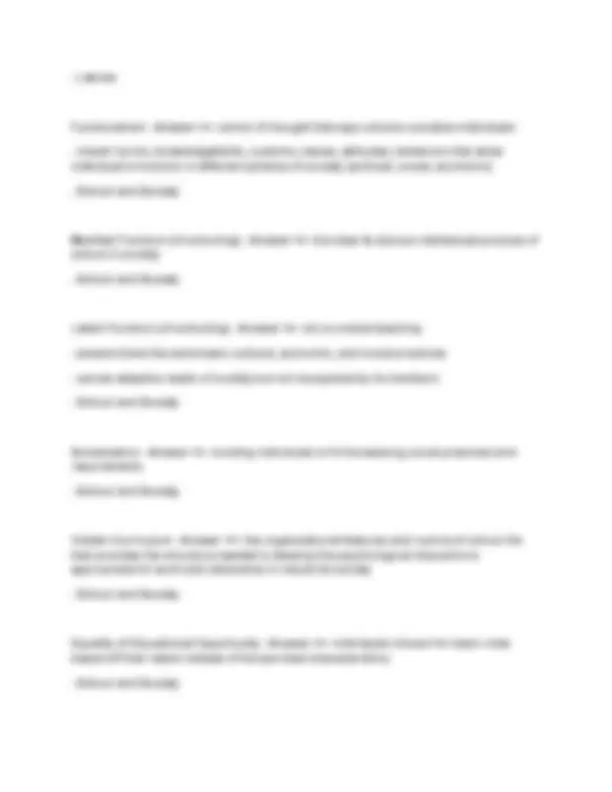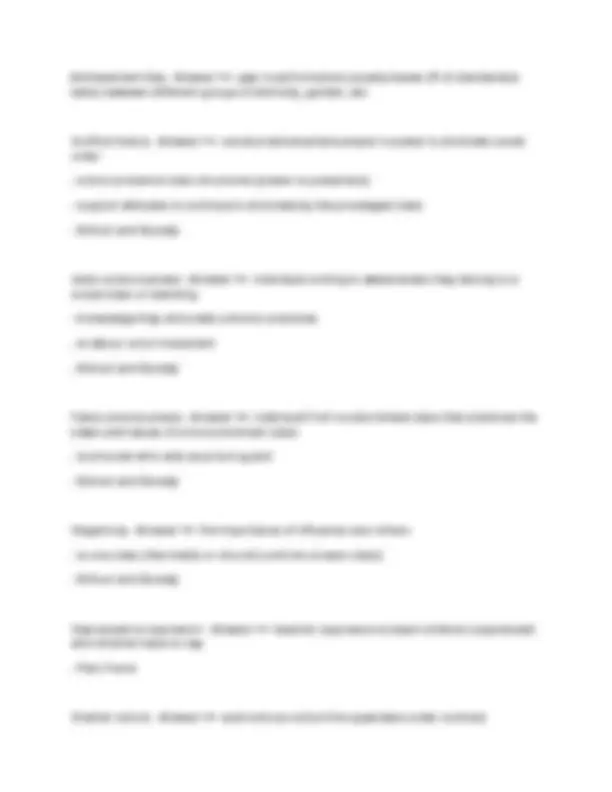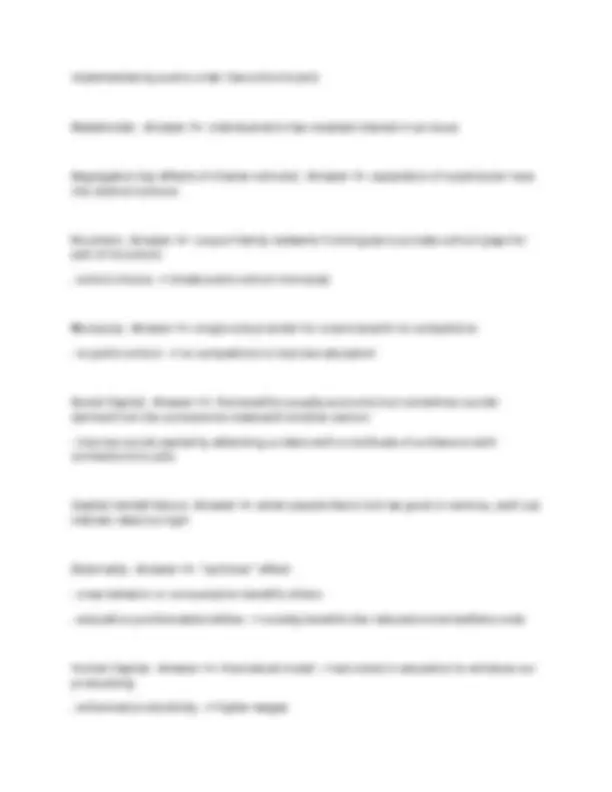





Study with the several resources on Docsity

Earn points by helping other students or get them with a premium plan


Prepare for your exams
Study with the several resources on Docsity

Earn points to download
Earn points by helping other students or get them with a premium plan
Community
Ask the community for help and clear up your study doubts
Discover the best universities in your country according to Docsity users
Free resources
Download our free guides on studying techniques, anxiety management strategies, and thesis advice from Docsity tutors
A comprehensive overview of key concepts and theories related to education, particularly focusing on industrial models of schools, education equality, and social stratification. It explores the historical and societal influences on education, examining the impact of industrialization on educational practices and the role of schools in shaping individuals and society. The document delves into various perspectives on education, including functionalism, conflict theory, and critical pedagogy, highlighting the complexities and challenges of achieving educational equity and social mobility. It also examines the concepts of public and private goods, use and exchange value of education, and the role of social capital in educational attainment. The document concludes with a discussion of charter schools, vouchers, and the impact of these policies on educational access and equity.
Typology: Exams
1 / 6

This page cannot be seen from the preview
Don't miss anything!




Industrial models of schools - Answer >>- schools reflect assembly lines of the Industrial Revolution
Industrial age assumptions of learning - Answer >>- 5 ways which learning occurs
Industrial age assumptions of schooling - Answer >>- 4 ways to manage and function
deficit perspective - Answer >>- with senge in industrial age assumptions of learning
Education equality - Answer >>- good sense, everyone should have an equally good
education
Labree's 3 goals of education - Answer >>1. Democratic equality (school prepares students to be good citizens in democratic society)
Public good - Answer >>- service that everyone benefits from
Private good - Answer >>- service or good that the person who purchased, produced, or finacially supported can use
Stratification - Answer >>- school divided into levels or hierarchy (grades and ability)
Use vs Exchange value of Education - Answer >>Use value: content of education itself is intrinsically useful Exchange value: extrinsic value; exchange for a job that has financial security, etc.
Achievement Gap - Answer >>- gap in performance (usually based off of standardize tests) between different groups of ethnicity, gender, etc
Conflict theory - Answer >>- social practice where people in power to dominate socail order
class consciousness - Answer >>- individual coming to awwareness they belong to a social class or standing
False consciousness - Answer >>- individual from a subordinate class that practices the views and values of a more dominant class
Hegemony - Answer >>- the importance of influence over others
Oppressed vs oppressor - Answer >>- teacher (oppressors) teach children (oppressed) and children have no say
Charter school - Answer >>- autonomous school the opperates under contract
implemented by public order like school board
Stakeholder - Answer >>- individual who has invested interest in an issue
Segregation (by effects of charter schools) - Answer >>- separation of a particular race into distinct schools
Vouchers - Answer >>- coupon family redeems if child goes to private school (pays for part of its tuition)
Monopoly - Answer >>- single sole provider for a service with no competitors
Social Capital - Answer >>- the benefits (usually economic but sometimes social) derived from the connections made with another person
Capital market failure - Answer >>- when people like to borrow good or service, cant cuz interest rates too hgih
Externality - Answer >>- "spillover" effect
Human Capital - Answer >>- theoretical model --> we invest in education to enhance our productivity